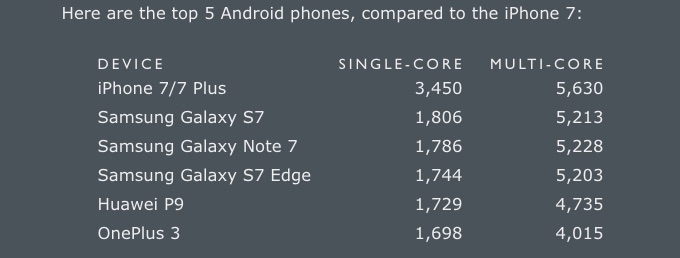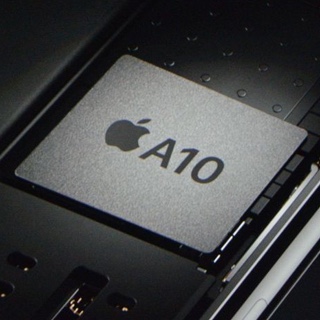Apple’s A10 Fusion design team should give themselves a pat on the back, and be allowed to walk around with a knowing smirk on their faces this week, as a new set of Geekbench benchmarks show the new A10-powered iPhone 7’s raw speed numbers outperforms any of the top Android handsets, (including Samsung’s latest and greatest). Oh yeah, and there’s something else; it also beats out any MacBook Air ever made, and can even keep up fairly well with a 2013 MacBook Pro.

John Gruber at Daring Fireball:
Looking at Geekbench’s results browser for Android devices, there are a handful of phones in shouting distance of the iPhone 7 for multi-core performance, but Apple’s A10 Fusion scores double on single-core.
Later on, Gruber updated his post with new info, showing how well the new handsets performed compared to the MacBook Air and previous-generation MacBook Pro. Those numbers showed the A10 Fusion outperforming every MacBook Air ever made, lagging only behind the early 2015 MacBook Air with an Intel Core i7 on the multi-core score, and then only by 20 points. (The A10 Fusion came out on top in the single-core performance tests by a 3261 to 2989 score). Apple’s latest chip also ran neck and neck with an early 2013 Intel Core i5-powered MacBook Pro.
Apple has long claimed their ARM-based A-series chips offer desktop performance in a mobile package, and these latest numbers certainly back that claim up all the way. This is also sure to keep alive long-standing rumors of Apple’s moving its Mac lineup of desktop and laptop computers away from Intel processors to their own A-series chips.


